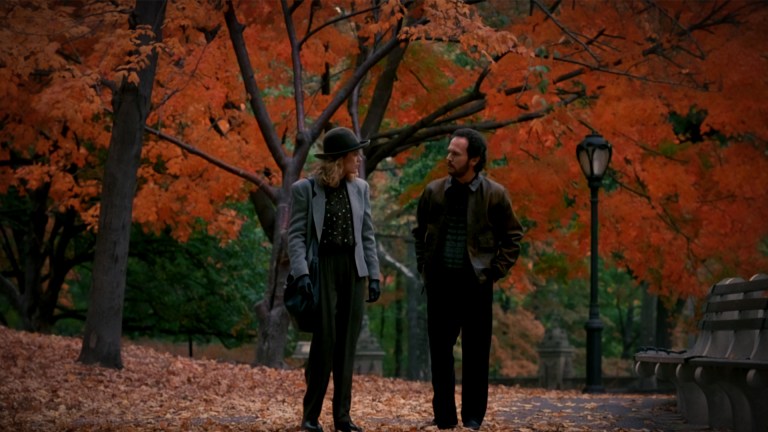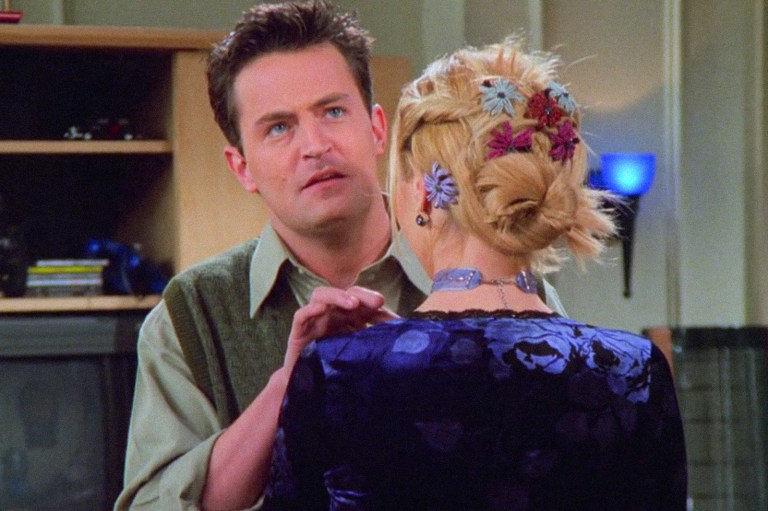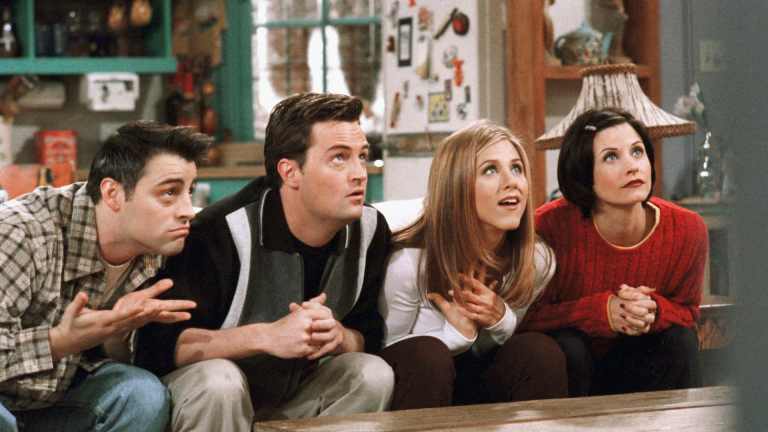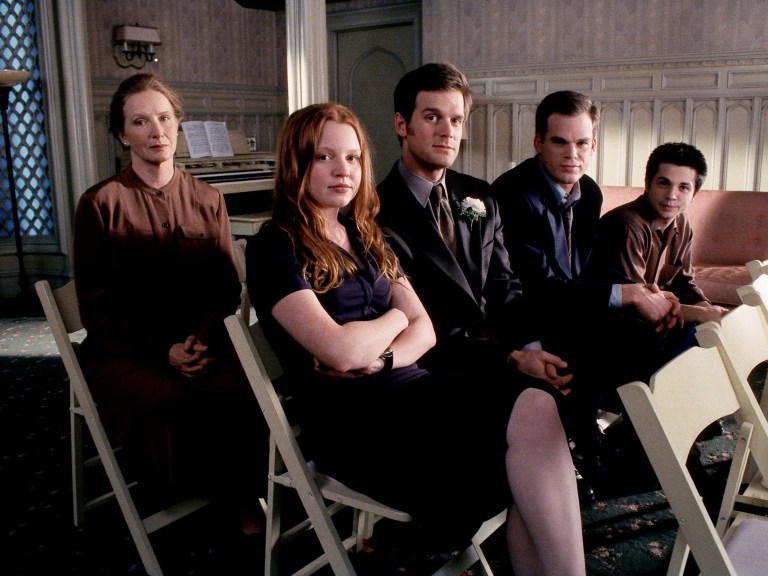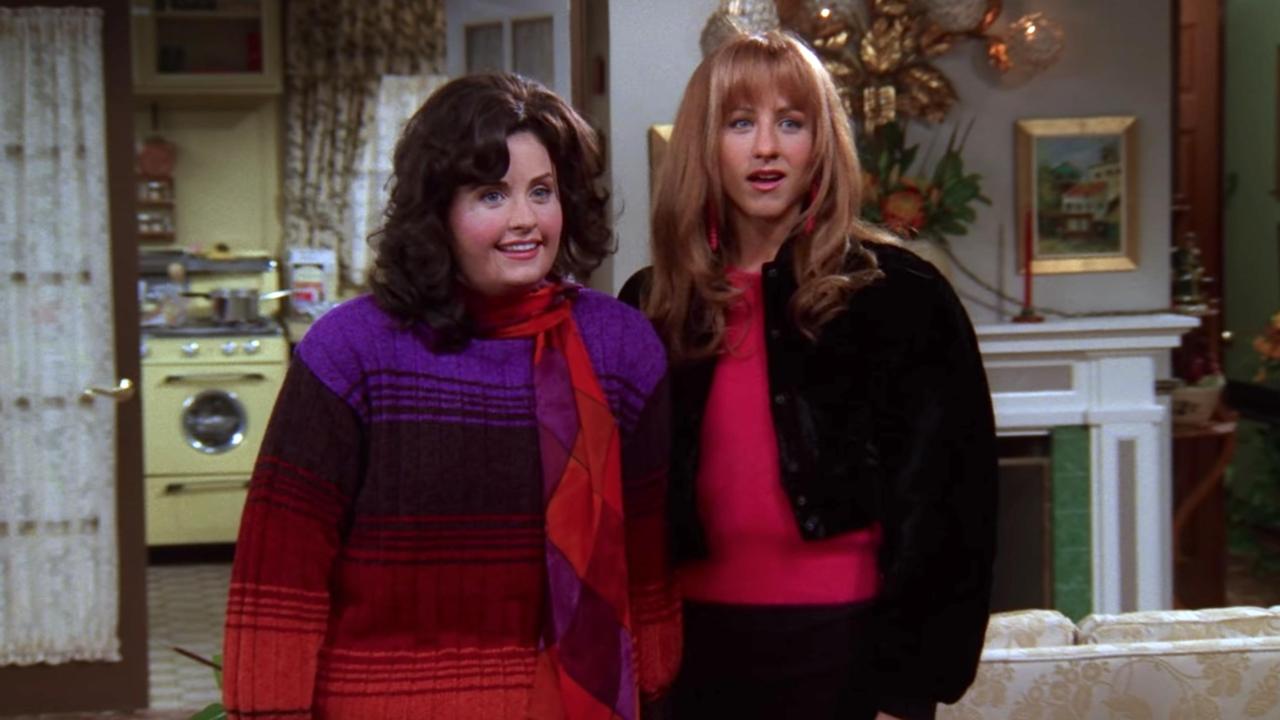
3 ‘Friends’ Moments That Still Hold Up… And 3 That Don’t
By ![]() Jamie Lerner
Jamie Lerner
2024 marks the 30-year anniversary since Friends first aired in 1994. The beloved sitcom changed the world (and that’s not an exaggeration). After the first season, it was already a groundbreaking hit, turning its six stars into household names and A-list celebrities. As its good vibes spread around the world, many have credited it with their English education, including actor Ana de Armas.
“I came to America when I was 26, and I learned English the way everyone who comes to this country does: by watching Friends,” she told The Independent in 2023. In HBO’s 2021 Friends reunion documentary, many people around the world said the same. But while Friends had a global impact on English-language learning and the future of sitcoms, it’s still 30 years old, which means some of its jokes are a bit outdated.
The world has evolved a lot since 1994 — everyone has a mobile phone with the internet at their fingertips and after the #MeToo movement, which gained traction in 2018, everyone seems to have a greater understanding of consent. Gay marriage has been legalized and trans rights are on the forefront of everyone’s minds. So there are plenty of Friends jokes that played into the world’s backwards views … and plenty of others that were ahead of the show’s time. So we’ve compiled three moments that don’t hold up and three that definitely do.
Does Not Hold Up: All the Body-Shaming
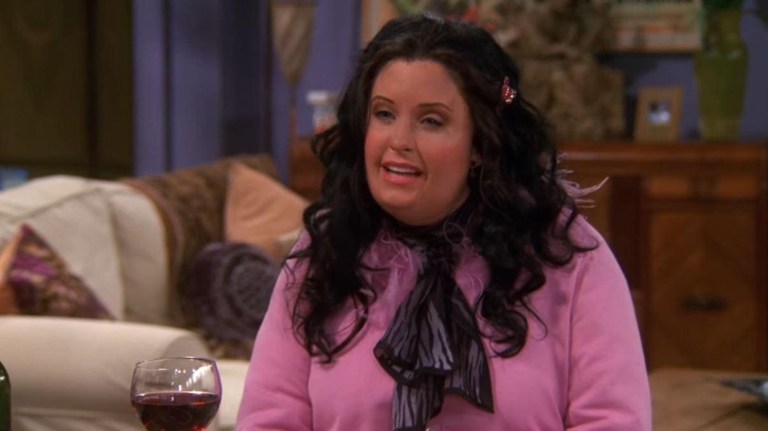
Friends gained popularity not just because of its witty script or well-timed jokes, but also because of its cast of six traditionally attractive actors. Without proper body-diverse representation, the show leans heavily on fat jokes throughout its ten seasons. It harkens back to Monica’s childhood, in which Courteney Cox wears a fat suit to represent her younger self. In “The One with the Prom Video,” we first see “fat Monica,” and the gang mocks her.
She claps back, “The camera adds ten pounds,” to which Chandler quips, “How many cameras were on you?” In 2024, it’s just not funny to body-shame people, even if they are your closest friends. Plus, without any body-diverse characters and a very slim actor in the fat suit, the way the script mocks fat people feels extra offensive. And it continues throughout the entire series in other ways as well.
For example, when Rachel and her sister, Amy, talk about their other sister, Jill, they gossip about Jill gaining 15 pounds, where she gained it in her body, and how “carbs found her.” In 2024, we know better than to gossip about someone’s weight and encourage disordered eating.
Does Hold Up: “The One with the Lesbian Wedding”
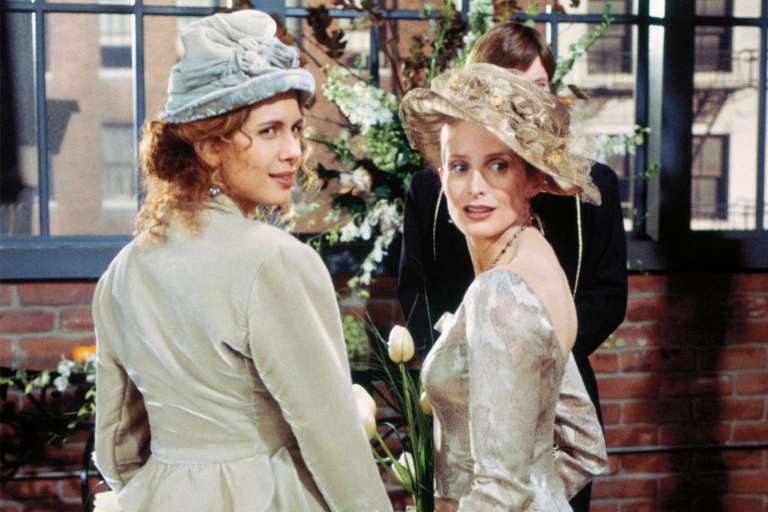
The entire Season 2 episode, which aired in Jan. 1996, was so ahead of its time that it still holds up to this day. In fact, the producers were so worried about portraying a lesbian wedding on network television that they allegedly hired 200 part-time operators to field calls about it, although they only received 11 calls, proving that people just want their favorite characters to be happy.
The episode toes the line between the humor and gravity of the situation, from Chandler trying (and failing) to flirt with a lesbian to Carol’s parents deciding not to go to the wedding. When Ross takes the high ground to walk his ex-wife down the aisle, it’s clear that the Friends writers are on the side of LGBTQ+ activism.
Does Not Hold Up: Mocking Gender Stereotypes
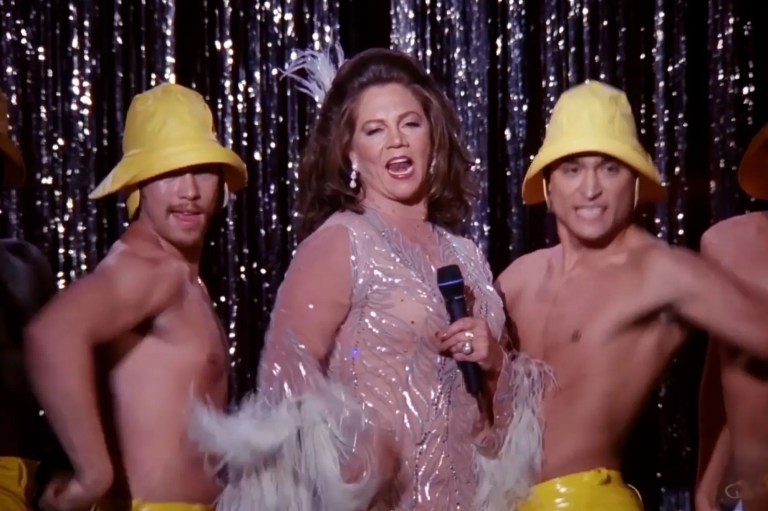
In some ways, Chandler’s dad being a trans woman is incredibly progressive, but much of the way it’s handled does not hold up. For starters, Chandler’s dad is played by Kathleen Turner, a woman with a deep voice who is not actually trans. The creators never even considered hiring a trans actor, and the character was still referred to as “he” because “pronouns were not yet something [they] understood,” Marta Kauffman told USA Today in 2023.
Even still, the creators did what they could to handle a delicate topic with care when it came to Chandler’s dad. But beyond this, Ross’s internalized masculinity would never hold up today. When Joey shares how much he loves his new bag, talking about how much he can hold in it, Ross adds, “Your makeup?” The line gets a laugh, but it wouldn’t fly today. Men can and do wear makeup; plus, carrying a nice bag doesn’t make him or anyone any less masculine.
Does Hold Up: Every Sex-Positive Moment (Especially with the Women)
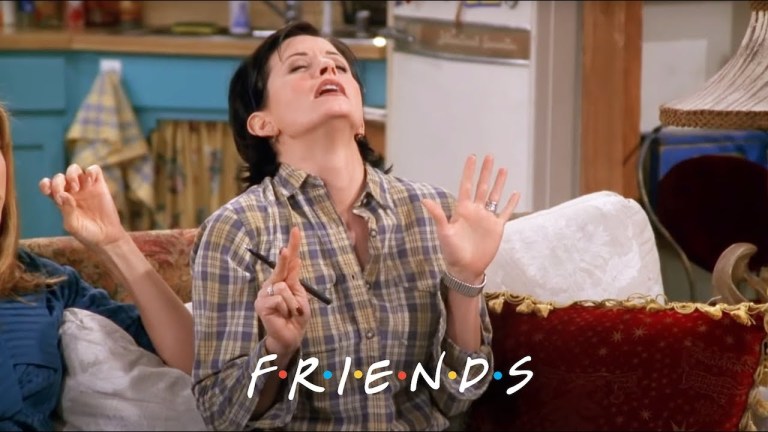
In the pilot, Monica sleeps with Paul the Wine Guy on their first date. In 1994, this was a major taboo and actually rubbed a lot of viewers the wrong way, but Friends’s unabashed portrayal of female sexuality and sex-positivity was truly progressive. While there is the rare bout of slut-shaming, such as with Bonnie’s character in “The One at the Beach,” women’s enjoyment of sex is talked about plainly on television.
In fact, the women know even more about the men sometimes, such as when they teach Joey to be “generous” to his girlfriend and when Monica teaches Chandler about the erogenous zones. But despite enjoying sex, the women are still treated as responsible adults.
Does Not Hold Up: Oversexualizing Women … and Sometimes Men
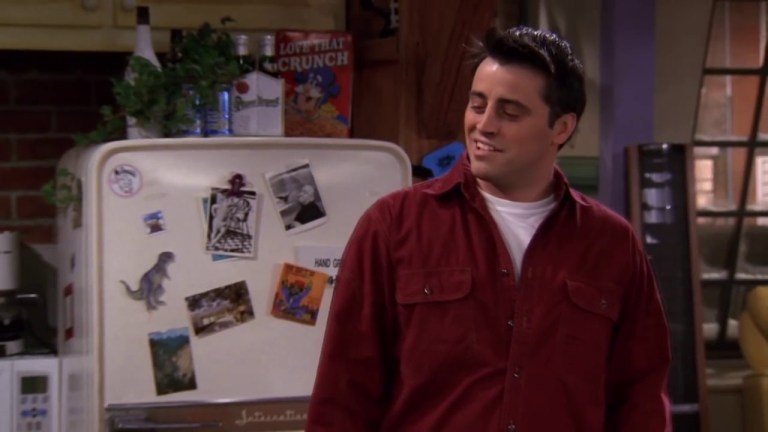
Everyone knows that Joey is a womanizer, but there are so many quotes of his and the guys’ that simply do not hold up because of how they talk about women as objects. In “The One with the Free Porn,” Joey and Chandler refuse to look away from the television. But as we know today, glorifying free pornography can have its ramifications to those working in the industry. While talking about pornography should be normalized, it’s only spoken about from the male gaze in Friends, making it feel icky every time it’s mentioned, such as when Monica rents Chandler a pornographic video for Valentine’s Day.
Throughout the show, Joey dates so many women that even he doesn’t remember their names. And if any of us were friends with a guy like Joey today, every girl we know would be saying how problematic he is. He was a f–kboy before the term was even invented, and even by the end of Friends’s ten seasons, he has very little growth in that department.
Does Hold Up: Suicide and Death as a Subject Matter
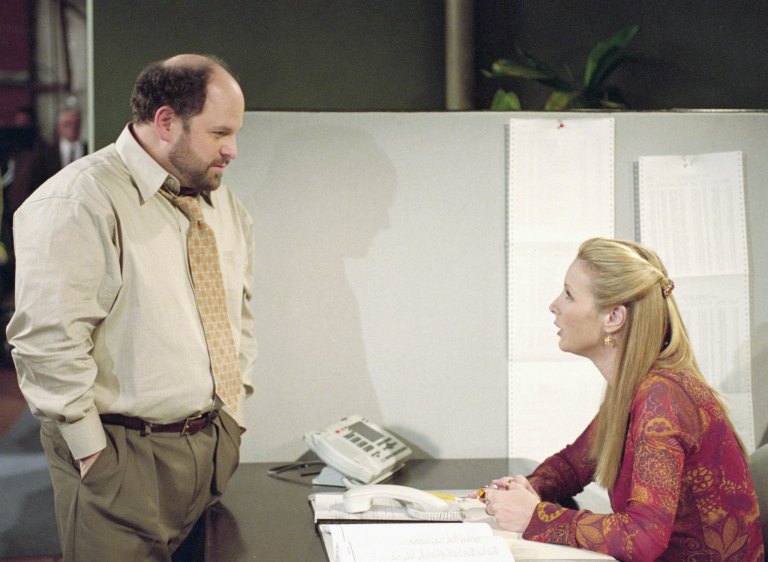
Most sitcoms would never even touch death, but with a character like Phoebe, that’s nearly impossible. Phoebe’s mom took her own life when Phoebe was just a young teen, leaving Phoebe and her twin sister out on the streets to fend for themselves. While there are some insensitive jokes around the topic, most of the time, it’s handled with both care and dark humor, such as Phoebe’s Christmas tradition of putting out a skull, or how Phoebe sings about death to children in “The One After the Super Bowl: Part 1.”
The way the writers handle suicide is most evident in “The One Where Rosita Dies,” in which Phoebe encounters a man named Earl (Jason Alexander) who wants to take his own life. However, because of her own experience, Phoebe talks him out of it. By showing this on television in 2001, when even talking about mental health was still taboo, Friends was and always will be incredibly progressive.

